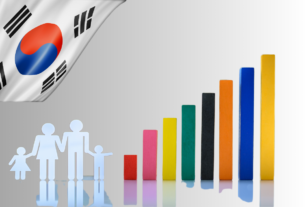European leaders are proactively developing strategies to maintain support for Ukraine in light of potential changes in U.S. foreign policy under President Donald Trump.
On March 2, 2025, British Prime Minister Keir Starmer hosted a summit at Lancaster House in London, gathering key European leaders, including French President Emmanuel Macron.
“Europe must demonstrate that we can be part of the solution,” Starmer emphasized during the summit.
The leaders discussed the formation of a “coalition of the willing” to provide security guarantees for Ukraine.
This coalition aims to enforce a potential peace agreement and deter further aggression.
The summit also addressed the need for increased defense spending among European nations.
The goal is to strengthen military capabilities and reduce reliance on U.S. support.
In a significant move, the United Kingdom announced a £1.6 billion export finance contract to supply Ukraine with 5,000 air defense missiles.
This package includes ground troops and air support to secure peace.
European leaders are also working to mediate between Kyiv and Washington.
The aim is to maintain strong transatlantic relations and ensure continued U.S. engagement.
The formation of the Weimar+ alliance marks a pivotal shift in European diplomacy.
This expanded alliance includes France, Germany, Poland, and the United Kingdom.
It seeks to promote European sovereignty and geopolitical influence independent of the United States.
The Weimar+ alliance emphasizes the necessity of European participation in any negotiations concerning Ukraine’s future.
It asserts that peace agreements must protect both Ukrainian and broader European security interests.
European officials are preparing contingency plans to increase military aid to Ukraine.
This preparation comes amid concerns that the U.S. may reduce its support under the Trump administration.
Polish Foreign Minister Radosław Sikorski highlighted the readiness of major EU countries to shoulder the burden of military and financial support for Ukraine if U.S. involvement decreases.
The European Union is also considering increasing funding for Ukraine.
This consideration arises from speculation that the U.S. may shift the financial burden to Europe.
Hungarian Prime Minister Viktor Orbán expressed concerns that Europe might struggle to fully fund the war on its own if Washington cuts off aid to Kyiv.
Estonian Prime Minister Kristen Mihal emphasized the importance of supporting Ukraine as a key factor in the future of European security.
European leaders are urging the European Commission to develop contingency plans to address potential reductions in U.S. aid.
The Ukraine Compact, signed by 23 countries on July 11, 2024, in Washington D.C., affirms that the security of Ukraine is integral to the security of the Euro-Atlantic region.
The signatories intend to support Ukraine until it prevails against Russia’s aggression.
This compact underscores the commitment of European nations to Ukraine’s sovereignty and territorial integrity.
European leaders are also exploring ways to increase defense capabilities.
This exploration includes addressing shortages in defense resources and personnel.
The International Institute for Strategic Studies (IISS) has highlighted these shortages despite increased spending following Russia’s invasion of Ukraine.
European officials acknowledge the need to wait until Trump’s inauguration in January to understand his position on Ukraine.
However, some believe that immediate action is necessary to prepare for potential changes in U.S. policy.
European leaders are emphasizing practical action over rhetoric to maintain strong transatlantic relations.
They are working to ensure that Europe can be part of the solution in supporting Ukraine.
The ongoing efforts by European leaders demonstrate a commitment to sustaining support for Ukraine.
These efforts aim to ensure regional stability and uphold democratic values.




